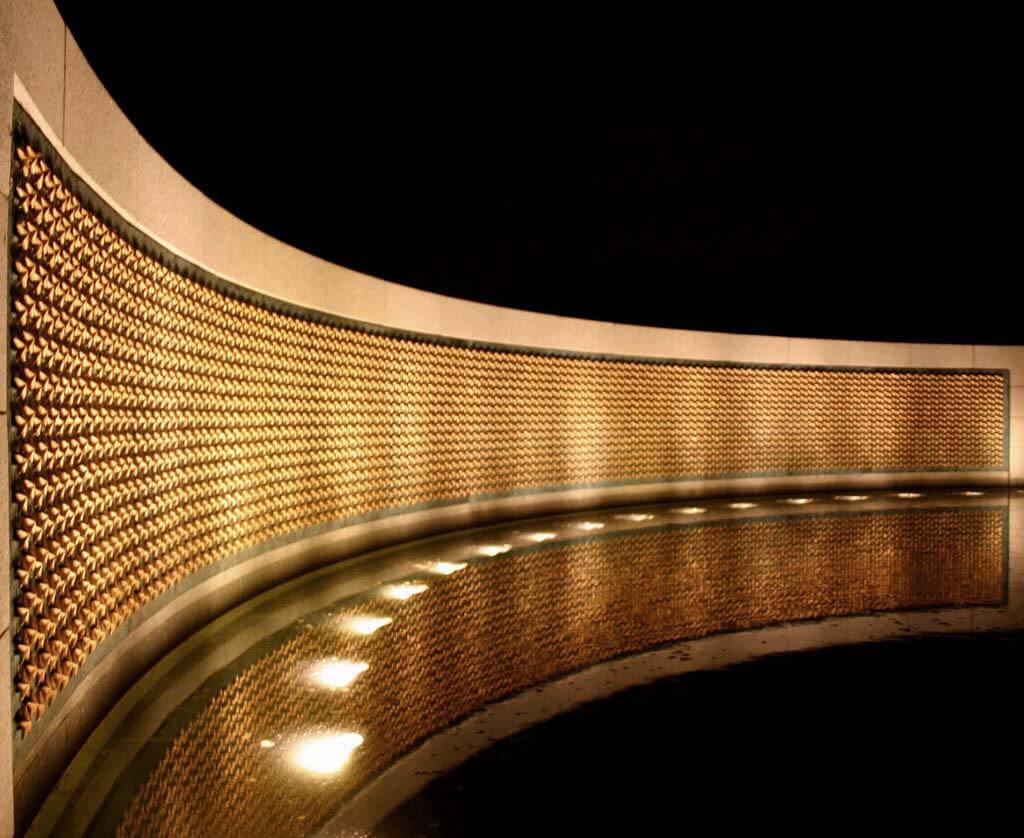Seventy years ago, we celebrated the end of World War II in Europe. That celebration is not the first memory of my childhood, but it is one of the clearest.
I was a five-year-old boy in Cape Town, South Africa, proudly displaying a paper Union Jack, the familiar British flag, and watching the victory parade. I often wonder where the flags came from – before offset printing and photocopying – in time for the parade. Someone knew victory was at hand.
There was a palpable, universal happiness – though more subdued, I am told, than the outbursts which greeted the end of World War I. For me, that was the best parade ever. It was wonderful to see people grabbing each other, doing little impulsive jigs in the street.
Marching in the parade was the handsomest man I had ever seen, or have seen since: my father in his best Royal South African Navy uniform of a chief petty officer, engine room. My father was a wonderful man in many ways. He was not lettered, but extremely kind and dutiful, and loved for those things — not for being handsome. But I tell you, that day he was handsome.
It was not until 1998 that Tom Brokaw called them “The Greatest Generation,” in a book of that name. Maybe all who go to war are the greatest generation. Maybe, every father who survives is unbearably handsome to someone.
Memorial Day is upon us and our veterans — maybe veterans everywhere — will be briefly remembered. The Greatest Generation was, perhaps, the last time a generation was defined by its sense of duty. That was true of the men and women who peopled my young life.
My father sold our home and few possessions, in what was then Southern Rhodesia, to serve. He was turned down for the British army in Rhodesia because an arm he had once broken had not mended properly. He had heard that the Royal South African Navy would be more tolerant. His acceptance by the navy was not a certainty, and we had no money. But we made the long, hot, six-day journey to South Africa by train to no known future; my father, mother, brother and myself, all going off to war because that is what was done. That is what the men of the Greatest Generation did because it was your duty to serve.
My father was not alone. I grew up hearing other stories of how people had gone to great lengths to serve and, having gotten into the armed services, how they did everything they could to get into the fight, not to serve at a distance in a British dominion, as South Africa then was. That is how South African pilots came to serve in the Battle of Britain.
In those days, patriotism was organic here in the United States and around the globe. Not every last man of military age was a patriot, but most were. It was the deep-seated culture.
When it was over, those who survived WWII were welcomed home with celebrations, appreciation and reverence. Alas the warriors from more recent wars, Korea, Vietnam, Kuwait, Afghanistan, Iraq and lesser conflicts, have come home to cold comfort. No parades, no five-year-olds with flags — and little place in the tapestry of the national memory. No recognition of their inalienable right to honor.
War is not everyone’s business anymore. Vietnam was the first war where patriotism was not part of the equation. Today, with a professional military, it is not the business of the armchair patriots with their slogans, urging others to take up arms.
When the World War II Memorial opened on the Mall in Washington in April 2004, I went there. I did not like it, architecturally; I was disappointed. But then men with canes and in wheelchairs began arriving, smiling and shedding occasional tears. It was important and moving to them, those handsome men. My father would have loved it; now, I like it well. Memorial Day weekend is at hand.

 Follow
Follow
Leave a Reply